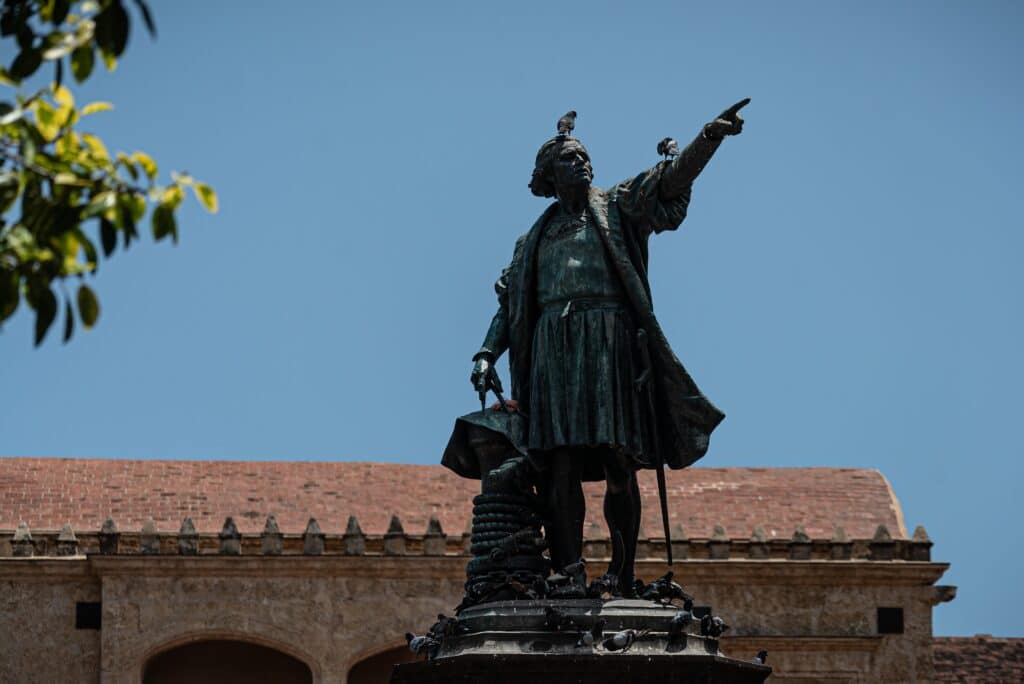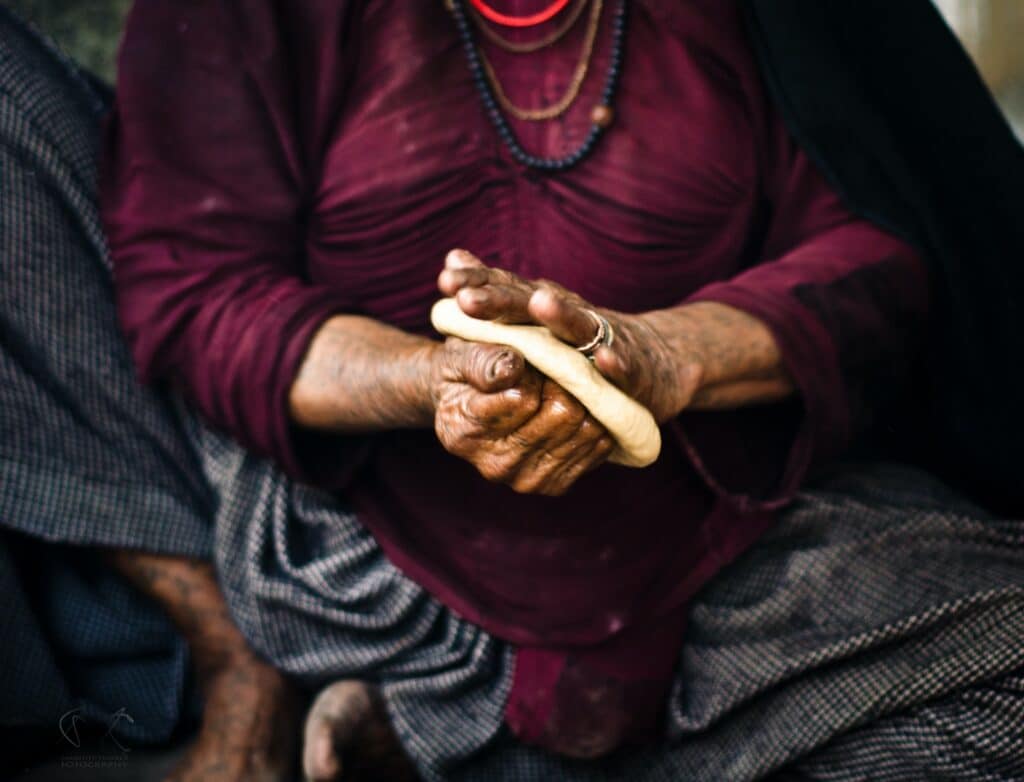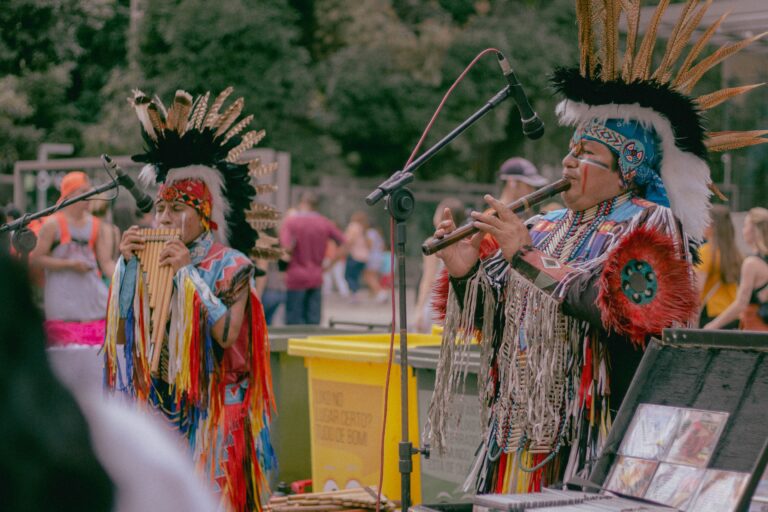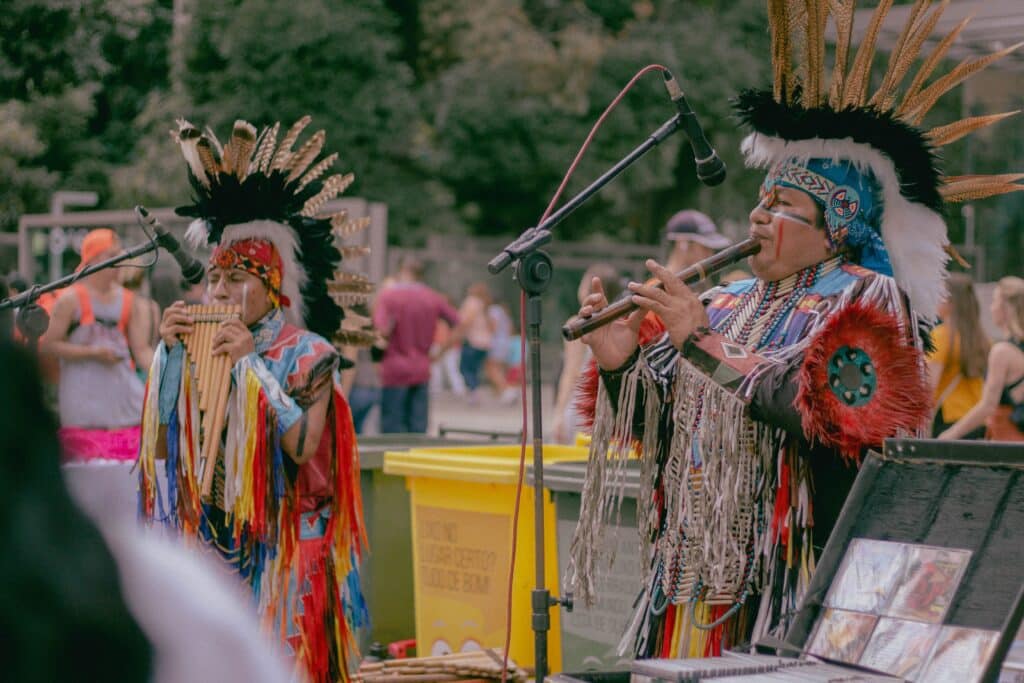
Since 1934, Columbus Day has been a national holiday in the U.S., but in recent years, people have begun to push for the reinvention of the holiday and renamed it Indigenous Peoples’ Day.
Those who have recently moved to the U.S. or live outside the country may wonder what’s behind the efforts to establish Indigenous Peoples Day. To answer that question, our team here at Remitly created this guide. Read on to learn more about what Columbus Day is called now by many people and to find out what’s driving the movement.
What is the Columbus Day holiday?
Sometimes called Christopher Columbus Day, Columbus Day is a U.S. national holiday that pays tribute to the Italian explorer Christopher Columbus.
With funding from King Ferdinand II and Queen Isabella I of Spain, Columbus sailed west from Europe, hoping to find a trade route that would provide access to China and India.
On October 12, 1492, one of his three ships spotted land that turned out to be what we now refer to as The Bahamas. Columbus named the island San Salvador.
During the following centuries, Christopher Columbus became credited with being one of the first Europeans to land in the New World, opening the doors to further exploration and the eventual formation of the 13 British colonies that would become the U.S.
On October 12, 1792, a Columbian order called the Society of St. Tammany held a celebration in honor of the 300th anniversary of Columbus’ voyage. The event was widely publicized, and informal annual celebrations of Columbus Day sprang up in the U.S. afterward.
A century later, President Benjamin Harrison issued a national proclamation to honor the 400th anniversary, and a year later, a large theatrical production was performed at the Chicago World’s Fair in his honor.
Inspired by these events, a Roman Catholic fraternal society called the Knights of Columbus began to lobby for establishing a national holiday dedicated to Christopher Columbus. Their efforts proved successful when President Franklin Delano Roosevelt made October 12 a federal holiday in 1934.
Many cities in the U.S. hold parades in honor of Columbus Day. Celebrations tend to be largest in metropolitan areas with sizable populations of Italian-Americans, who view the holiday as a time to celebrate their heritage and contributions to U.S. history.
When is Columbus Day?
In 1971, Columbus Day’s official date changed from October 12 to the second Monday in October. It made it a federal holiday, meaning that government agencies and many public schools would close for the day. This move allowed American workers who received Columbus Day off from work to have a three-day weekend.
Columbus Day 2023 will take place on October 9. In 2024, the holiday will fall on October 14.
Why is Columbus Day no longer celebrated by many people?
Over the last few decades, people have begun to challenge Columbus Day for a number of reasons, including all the following.
Christopher Columbus wasn’t the first European to arrive in the New World
One argument against Columbus Day is that Christopher Columbus wasn’t the first European to arrive in the New World. The Vikings led by Lief Ericksson actually established a settlement in what is now Newfoundland, Canada, in 1001, over 491 years before the arrival of Columbus.
The Columbus Day story erases Indigenous peoples
Some argue that the story of Christopher Columbus ignores or erases Indigenous peoples. The story makes it seem as if Columbus was the first person to set foot on the island of San Salvador when, in fact, Indigenous peoples had been living there since 300 to 400 AD.
The story of Indigenous peoples’ suffering began with Columbus
Exploring and colonizing the New World brought prosperity to European nations at the expense of the people already living in the Americas. The explorers brought diseases that caused epidemics among the Indigenous peoples and inflicted violence on others. Within 130 years of Columbus’ arrival, roughly 95% of the Indigenous population of the Western Hemisphere had been wiped out.
Advocates for the abolishment of Columbus Day argue that Columbus’ arrival marked the start of a genocide against Indigenous peoples and that the event shouldn’t be celebrated.

What is Indigenous Peoples’ Day?
Many pushing for the end of Columbus Day support establishing Indigenous Peoples’ Day in its place. The purpose of the holiday is to honor the place of Indigenous peoples in U.S. history, remembering both their contributions and their suffering.
What does Indigenous mean?
The term “indigenous” means something originating or occurring in a certain place. When used to describe people, Indigenous refers to a native individual, someone who was living in an area before outside explorers and colonizers arrived. Descendants of these native peoples comprise the modern-day Indigenous population.
When is Indigenous Peoples’ Day?
Like Columbus Day, Indigenous Peoples’ Day occurs on the second Monday of October. The date of Indigenous Peoples’ Day 2023 is October 9, and in 2024, it will take place on October 14.
Is Indigenous Peoples’ Day a federal holiday?
As of 2023, Indigenous Peoples’ Day is not a federal holiday. However, many states and cities in the U.S. observe the holiday.
On October 8, 2021, President Joe Biden became the first U.S. president to issue a proclamation in honor of Indigenous Peoples’ Day, just as Harrison did Columbus Day 129 years before.
How to celebrate Indigenous Peoples’ Day
Even though Indigenous Peoples’ Day isn’t an official federal holiday, there are many ways that you can celebrate the event on your own. The following are some great ways to pay tribute to Indigenous peoples on the second Monday of October and throughout the rest of the year.
Research the native land where you live
All of the U.S. was native land that belonged to Indigenous peoples at some point in history. For Indigenous Peoples’ Day, spend some time learning about the tribe or tribes that lived in your area.
Native Land Digital provides an easy-to-use map that allows you to identify the names of tribes. From there, you can use trusted online resources or visit your local library to learn about them.
Complete a green project
Nature is an important part of many Indigenous communities, so doing an act of kindness for the planet can be a meaningful way to commemorate them. You could plant a native tree, clean up litter from the roadside, or hold a recycling drive in honor of the holiday.
Donate to charity
Donating to a nonprofit run by Indigenous peoples or serving Indigenous populations is another way to celebrate Indigenous Peoples’ Day. Some organizations that you can consider giving to include:
- American Indian Community House
- California Heritage Indigenous Research Project
- Community Outreach and Patient Empowerment (COPE)
- Highland Support Project
- Hopa Mountain
- Hopi Relief Fund
- Indigenous Media Freedom Alliance
- Indigenous Roots
- Indigenous Values Initiative
- Intertribal Friend House
- National Urban Indian Family Coalition
- Native American Advancement Foundation
- Native American Disability Law Center
- Peacekeeper Society
- People’s Partner for Community Development
- Restoring Justice for Indigenous People
- Seeding Sovereignty
- Sogorea Te’ Land Trust
- Spirit of the Sun
- Trees, Water & People
- Wings of America
Participate in an event
Many museums, schools, community centers, libraries, and tribal governments hold events to celebrate Indigenous Peoples’ Day. Check your local community calendars to find out if there are any special events in your area, and make plans to attend.
Write to your elected officials
If you support the adoption of an Indigenous Peoples’ Day as a national holiday, you can get in touch with your Congressperson and U.S. Senators. The U.S. House of Representatives finder tool and the U.S. Senate search tool make it easy to send an online message to your elected officials.
Watch videos
Spend Indigenous Peoples’ Day learning about Indigenous people through informational videos created by reputable sources. The Public Broadcasting System (PBS) has a variety of videos geared toward audiences of all ages available for viewing in its Native American Heritage Collection.
Tour a museum
Numerous museums are dedicated to Indigenous peoples throughout the U.S. Planning a visit to one can allow you to learn more about Indigenous history and heritage. Here are just some well-known museums:
- Ah-Tah-Thi-Ki in Clewiston, Florida
- First Americans Museum in Oklahoma City, Oklahoma
- The Eiteljorg Museum in Indianapolis, Indiana
- The Heard Museum in Phoenix, Arizona
- The Journey Museum and Learning Center in Rapid City, South Dakota
- Millicent Rogers Museum in Taos, New Mexico
- Mt. Kearsarge Indian Museum in Warner, New Hampshire
- Museum of Contemporary Native Arts in Santa Fe, New Mexico
- National Museum of the American Indian in Washington, DC
- Onöhsagwë:de’ Cultural Center in Salamanca, New York
- Six Nations Indian Museum, Onchiota, New York
Even if you don’t have an Indigenous museum near you, there may still be exhibits at other history museums in your area. Use the Great Museums directory to discover museums near where you live.
Other U.S. holidays dedicated to Indigenous peoples
In addition to Indigenous Peoples’ Day, there are other holidays dedicated to Indigenous peoples’ celebration nationwide and in certain states, including:
- American Indian Day: Celebrated in Tennessee on the 4th Monday in September
- Native American Day: Celebrated in California and Nevada on the second Friday in September and in South Dakota and Wisconsin on Indigenous Peoples’ Day
- Native American Heritage Day: Celebrated nationwide on the Friday immediately after the fourth Thursday in November
- Native American Indian Heritage Month: Celebrated nationwide in November
As these dates approach, check local calendars to find out if there are any events in your area that you can take part in.
Indigenous Peoples’ Day outside the U.S.
Indigenous peoples don’t just live in the U.S. The global Indigenous population is around 476 million people who reside in 90 countries. In total, Indigenous peoples make up 5% of the world’s population.
Some other countries have established holidays to honor Indigenous peoples’ contributions and history. Here are the dates for some of these international holidays:
- June 21: National Indigenous Peoples’ Day in Canada
- August 1: Indigenous Peoples’ Day in Taiwan
- August 4: National Aboriginal and Torres Strait Islander Children’s Day in Australia
- August 9: International Day of the World’s Indigenous People, established by the United Nations and celebrated in all UN member states
- October 29: Indigenous Peoples’ Day in the Philippines
You may also like
- Christmas in Australia: Popular Traditions Down Under
- A Very Filipino Christmas: Ways to Celebrate When You’re Away from the Philippines
Visit the homepage, download our app, or check out our Help Center to get started.


